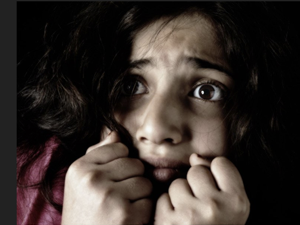Panic Attacks treatment
 Contact a psychiatrist in the province of Milan, who is specialized in treating panic attacks with experience and works in important care centers (San Raffaele Hospital and Policlinico).
Contact a psychiatrist in the province of Milan, who is specialized in treating panic attacks with experience and works in important care centers (San Raffaele Hospital and Policlinico).
Be mindful of where you choose to be treated: it is essential!
Panic attacks are one of the most common psychiatric disorders. Patients that suffer from this disorder are usually young, between the age of 15 and 30. Mainly woman are affected by it, in fact, the ratio is 2-3 women for every man.
A doctor must make the diagnosis of panic attacks, possibly a psychiatrist.
You should contact a specialist when you:
- Are convinced of having a serious physical illness (eg heart disease, stroke, cancer , etc …).
- Feel apprehension, uncertainty, and fear resulting from anticipation of a realistic or fantasized threatening event or situation, often impairing physical and psychological functioning.
- Experience depressive syndrome linked to the fear that the panic attack suddenly may reoccur.
- Sometimes abuse of alcohol or drugs (anxiolytics) to avoid anxiety symptoms.
Anyone who knows fear is aware it gives a series of physical sensations, such as tachycardia, sweating, a feeling of tightness or breathlessness. Indeed, panic attacks lead to a massive activation of the autonomic nervous system that produces the sensations of fear. The feeling is similar to terror; it is uncontrollable and concentrated in a short period of time.
The following list gives names to a few neurodegenerative and psychological symptoms:
- intense feeling of doom and gloom
- racing heart
- lightheadedness
- heart palpitations
- sweating
- nervous stomach
- trembling
- feeling like you are about to lose control
- feeling like you are about to go crazy
- feeling overwhelmed
- sudden and strong urge to escape
- heightened fear and apprehension
- increased stimulation
- pins and needles
- throat tightness
- muscle weakness
- weakness in the knees
- super sensitive senses and nerves
There are two types of panic attack. The first is called spontaneous or unexpected panic attack, because it comes at a time when it is not predictable. The onset of the disorder is manifested as an unexpected panic attack. The second type is called situational panic attack, because it appears in a situation where the person is afraid that it will happen and it is intensified by the fear of having the panic attack. For example, there are people who after experiencing a panic attack on the subway, they become so scared that their anxiety increases the chances of having another panic attack. In other words, fearing fear feeds the panic attack.
How to heal panic? How to defeat anxiety?
Panic attacks are treated through medication or through psychotherapy or, even better, with a combined treatment . You don’t have to underestimate the sings, because if caught early, this disorder has an excellent prognosis, both drugs and psychotherapies are able to help the person feel better.
If you think you may have or had a panic attack, contact a psychiatrist or psychotherapist specialized in anxiety disorders in order to have a proper diagnosis (which is always done by a specialist and never alone).
“The medical and scientific information found in this site are for informational use only and can not in any way replace the medical examination.”
**********************************************
Contact:
– Psychiatrist Licia Lietti +39 338 5019524
– Clinical Psychologist, Martina Trinchieri: +39 393 5564912
email: martinatrinchieri90@gmail.com
– Clinical Psychologist Martina Larsen Paya: +39 349 169627
email: martinalarsenpaya@gmail.com
http://larsen-paya-psicologa.com/
**********************************************



